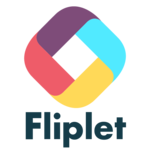Description

Frontegg

Platform.sh
Comprehensive Overview: Frontegg vs Platform.sh
Frontegg and Platform.sh are both solutions aimed at modern developers and enterprises, providing tools to streamline application development and management. However, they address different aspects of the development lifecycle.
Frontegg
a) Primary Functions and Target Markets:
- Primary Functions: Frontegg is primarily an authentication and user management platform. It offers features like pre-built login/authentication flows, multi-factor authentication (MFA), social login integrations, user roles and permissions, organizational contexts, audit logs, and more. Essentially, it provides a sophisticated user management infrastructure for applications.
- Target Markets: Its main target markets are SaaS companies and enterprises that require a robust and scalable solution for authentication and user management. It is especially appealing to tech companies that want to accelerate their product development by offloading user management components.
b) Market Share and User Base:
- Frontegg is a growing player in the developer tools and SaaS ecosystem. While specific market share data might not be widely publicized, it competes with other authentication providers like Auth0 and Firebase Authentication. Frontegg has carved a niche by focusing on rapid integration and comprehensive management tools tailored towards SaaS applications.
c) Key Differentiating Factors:
- Comprehensive User Management: Frontegg differentiates itself by offering more than just authentication. Its extensive features for managing user roles, permissions, and organizational structures make it a full-suite solution for user infrastructure.
- Rapid Integration: The platform is designed for easy integration into existing applications, allowing teams to quickly implement authentication without building from scratch.
- Focused on Enterprise Needs: Frontegg provides features aligned with the needs of enterprise clients such as audit logs and team management capabilities.
Platform.sh
a) Primary Functions and Target Markets:
- Primary Functions: Platform.sh is a Platform-as-a-Service (PaaS) that helps developers build, host, and scale applications. It automates infrastructure provisioning, scaling, and deployment through a Git-driven workflow. It supports multiple programming languages and frameworks, providing seamless management of runtime environments.
- Target Markets: Its target markets include digital agencies, software development teams in enterprises, and any organization seeking a robust cloud hosting solution that integrates DevOps and scaling capabilities.
b) Market Share and User Base:
- Platform.sh has a strong presence in the PaaS market, often competing with Heroku, AWS Elastic Beanstalk, and Google App Engine. While it may not have the same expansive reach as AWS, it is known for its strong niche with web agencies and projects requiring a straightforward, Git-based deployment workflow.
c) Key Differentiating Factors:
- Git-Driven Development: Platform.sh emphasizes a Git-based workflow for deployments, which integrates well with existing version control practices and simplifies development processes.
- Multi-Cloud and Multi-Region Support: It offers diverse cloud hosting options that can be tailored to the geographic and technical needs of its clients, giving developers flexibility in deployment.
- Scalability and Performance: Platform.sh provides strong tools for scaling applications with built-in features for redundancy and high availability, appealing to larger-scale enterprise applications.
Comparing Frontegg and Platform.sh
Although Frontegg and Platform.sh both target the tech/enterprise ecosystem, they address distinct challenges within software development.
- Functionality: Frontegg is focused on authentication and user management, while Platform.sh is a comprehensive PaaS solution for application deployment and scaling.
- Integration and Use Case: Frontegg integrates into the backend of applications to manage users, whereas Platform.sh manages the full lifecycle of application deployment and hosting.
- Market Appeal: Frontegg attracts businesses needing user management capabilities, whereas Platform.sh is aimed at teams wanting to streamline their DevOps and application hosting processes.
Both tools highlight the trend of specialized platforms that cater to specific needs within the software development lifecycle, and they complement rather than compete against each other directly.
Contact Info

Year founded :
2019
+1 234-567-8992
Not Available
United States
http://www.linkedin.com/company/frontegg

Year founded :
2015
+33 1 40 09 30 00
Not Available
France
http://www.linkedin.com/company/platformsh
Feature Similarity Breakdown: Frontegg, Platform.sh
Frontegg and Platform.sh are both platforms designed to help developers and organizations manage web applications and enhance DevOps processes, but they serve somewhat different purposes and have distinct feature sets. Here's a breakdown of their similarities and differences:
a) Core Features in Common
-
Developer-Centric Tools:
- Both platforms cater to developers and offer tools that streamline the process of application development and management.
-
Integration Capabilities:
- Both Frontegg and Platform.sh support integrations with various third-party applications to extend functionality and improve workflow efficiency.
-
Scalability Support:
- They emphasize scalability, allowing users to scale their applications as needed to accommodate growth.
b) User Interface Comparison
-
Frontegg:
- Frontegg's UI is designed to enhance user management experiences primarily. It typically offers a clean, modular interface that's focused on user authentication features, including login interfaces, account management panels, and an admin dashboard for managing user roles and permissions. The design is user-friendly and often includes customizable components developers can integrate into their applications.
-
Platform.sh:
- The UI of Platform.sh targets a broader spectrum of DevOps functionalities. It provides interfaces for managing application environments, infrastructure, and deployment processes. Its UI includes features that help manage multiple environments, automate deployments, and visualize application performance. The interface is more technical and may be more complex due to the comprehensive nature of DevOps functionalities.
c) Unique Features
-
Frontegg:
- User Management & Authentication: Frontegg is strongly focused on user authentication and management features, including out-of-the-box authentication, social logins, passwordless logins, multi-factor authentication, and user roles and permissions management.
- Customizable UI Components: Offers predefined UI widgets that developers can integrate directly into applications for quick setup of user management features.
-
Platform.sh:
- Environment Management: Provides unique tools for creating and managing multiple environments (e.g., production, staging) for applications, which is particularly beneficial for version control and continuous deployment practices.
- Automated DevOps Workflows: Platform.sh specializes in automating DevOps workflows, making it easier to deploy changes across multiple environments with minimal friction and without downtime.
- Multicloud & Polyglot Support: Offers robust support for deploying applications in a multicloud environment and supports numerous programming languages, which is a key differentiator for developers working with various tech stacks.
In summary, while both Frontegg and Platform.sh offer developer tools with integration capabilities and scalability, they serve different primary objectives—Frontegg focuses on enhancing user management services, while Platform.sh is tailored more towards comprehensive infrastructure and environment management. Each has unique features that cater to specific use cases within the software development lifecycle.
Features

Customer Engagement
Subscription Management
User Management
Authentication

Security Features
Scalability
Developer Productivity
Continuous Deployment
Environment Management
Best Fit Use Cases: Frontegg, Platform.sh
Frontegg
a) For what types of businesses or projects is Frontegg the best choice?
Frontegg is an excellent option for businesses and projects that are focused on rapidly developing SaaS applications and need a robust user management and authentication framework. The platform is best suited for:
-
SaaS Companies: Specifically those looking to speed up their go-to-market process by outsourcing non-core but essential functionalities like user authentication, authorization, and account management. Frontegg offers features like single sign-on (SSO), multi-factor authentication (MFA), and user roles management.
-
Startups: Early-stage companies that require an efficient way to implement and manage user authentication without investing significantly in building their own systems from scratch.
-
Development Teams: Teams that want to streamline their development process by integrating a ready-to-use, scalable authentication solution to focus on core product features.
-
Applications Requiring Compliance: Projects where user management compliance and security are critical, such as healthcare or fintech apps, can greatly benefit from Frontegg’s robust security features.
Platform.sh
b) In what scenarios would Platform.sh be the preferred option?
Platform.sh is ideal for businesses and projects that need a comprehensive, flexible hosting solution with strong DevOps capabilities. This includes:
-
Decentralized Teams: Development projects spread across multiple geographic areas that need a centralized platform for code collaboration and DevOps orchestration.
-
Enterprises: Large organizations that require scalability, reliability, and a customizable platform that can handle multiple development environments and complex workflows.
-
E-commerce Businesses: Companies needing high performance and rapid deployment capabilities to ensure smooth operations and scalable resources for handling traffic spikes.
-
Agencies and Consultancies: Agencies managing multiple client projects that need a versatile, multi-environment platform to deploy, test, and manage multiple websites or applications easily.
d) How do these products cater to different industry verticals or company sizes?
-
Frontegg: Primarily focuses on smaller to mid-sized companies, especially SaaS providers across various verticals like technology, healthcare, and finance. Regardless of the industry, any company that requires efficient user identity and authentication management can benefit from Frontegg’s platform. Its flexibility and feature-rich environment allow it to cater to specific regulatory needs across industries.
-
Platform.sh: Serves a wide range of industry verticals due to its highly flexible and scalable nature. It meets the needs of small startups needing a cloud platform, as well as large enterprises or government agencies that need to orchestrate complex workflows and maintain stringent compliance standards. Whether it's e-commerce, digital media, financial services, or public sector projects, Platform.sh offers the versatility required to support diverse business needs and company sizes.
In summary, Frontegg is geared towards companies focusing on rapid SaaS application development with strong user authentication needs, while Platform.sh provides a robust, scalable platform for diverse projects with complex deployment and DevOps requirements.
Pricing

Pricing Not Available

Pricing Not Available
Metrics History
Metrics History
Comparing teamSize across companies
Conclusion & Final Verdict: Frontegg vs Platform.sh
Conclusion and Final Verdict
Choosing the right platform between Frontegg and Platform.sh depends heavily on the specific needs and priorities of your project. Both products have their unique strengths and cater to different aspects of development and deployment processes.
a) Considering All Factors, Which Product Offers the Best Overall Value?
The determination of which product offers the best overall value will largely depend on the specific context and requirements of users.
-
Frontegg: Offers immense value for teams looking to integrate robust authentication and user management capabilities quickly. It is particularly suited for SaaS developers who want to accelerate their go-to-market time by outsourcing these complex functionalities.
-
Platform.sh: Provides significant value for those who need a comprehensive platform-as-a-service (PaaS) solution for managing complex application lifecycles. It excels in streamlining deployments, scaling applications, and maintaining environments.
If your primary need is to enhance application features with user management capabilities without building them from scratch, Frontegg is likely the better value. On the other hand, if you need an all-encompassing solution to host, scale, and manage your application environment, Platform.sh offers excellent value.
b) Pros and Cons of Choosing Each Product
Frontegg:
- Pros:
- Simplifies user management with pre-built authentication features.
- Rapid integration can significantly reduce development time for SaaS products.
- Provides security and compliance features out-of-the-box.
- Cons:
- May not provide as much value for projects that do not require extensive user management functionalities.
- Limited functionality beyond authentication and user management, necessitating other services for complete application deployment.
Platform.sh:
- Pros:
- Comprehensive support for deployment and hosting, covering a broad spectrum of application needs.
- Environment management is seamless, offering built-in backups, scaling, and continuous integration/continuous deployment (CI/CD) processes.
- Supports a wide array of languages and frameworks, promoting versatility.
- Cons:
- May be overkill for small applications with simple deployment requirements.
- Costs could be higher for startups or small projects compared to simpler hosting solutions.
c) Specific Recommendations for Users Deciding Between Frontegg vs Platform.sh
-
Assessment of Needs:
- Evaluate the core requirements of your project. If they heavily revolve around user authentication and management, Frontegg is ideally positioned to address these efficiently.
- For applications with complex environments that require robust deployment solutions, Platform.sh may be more aligned with your needs.
-
Scalability Expectations:
- Consider future scalability and maintenance. Platform.sh might have a slight edge if you anticipate rapid scaling and need to manage robust infrastructure efficiently.
-
Budget Considerations:
- Analyze your budget constraints. Frontegg may offer a more cost-effective route if user management is your primary concern. However, Platform.sh can provide more extensive infrastructure capabilities that might justify a higher cost for larger projects or teams.
-
Integration and Flexibility:
- Understand your team's existing technology stack and their ability to adapt to new platforms. Platform.sh offers tremendous versatility with its support across various languages and frameworks, which can be attractive for tech-diverse teams.
In the end, both Frontegg and Platform.sh bring their unique strengths to the table. Deciding between them requires a clear understanding of your project's goals, the technical expertise of your team, and an evaluation of budgetary constraints. Approaching this decision with these factors in mind will lead to a choice that best complements your project's long-term vision.
Add to compare
Add similar companies




